Building Safe and Supportive Work Environment
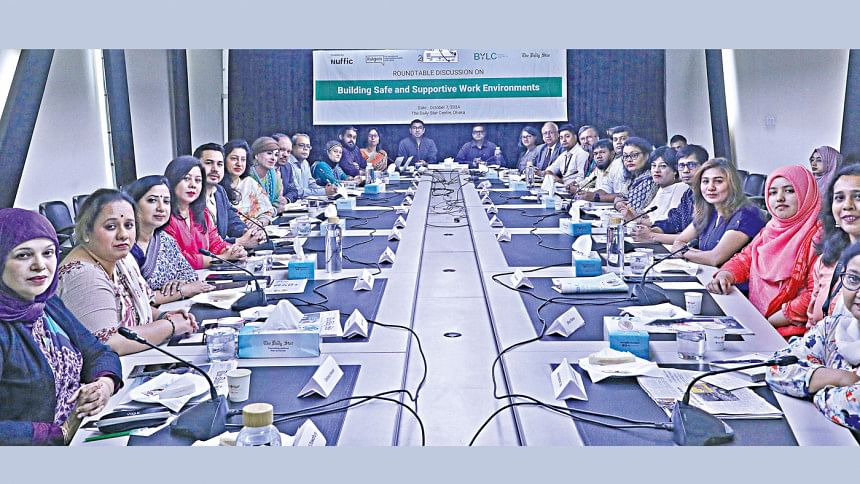

Hamid Ibne Habib, Assistant Manager, Alumni Coordinator and Program Execution, BYLC (Keynote Presentation)
Founded in 2008, Bangladesh Youth Leadership Center (BYLC), the country's first leadership institute, exists to build connections among youth from diverse backgrounds, equip them with leadership skills, and enable them to have high impact in public, private, and civil sectors. BYLC aims to strengthen prosperity, justice, and inclusiveness in societies worldwide. Through the Empowered Youth Labor Force (EYLF) Project - funded by Nuffic and in collaboration with Rutgers and BRAC JPGSPH - BYLC aims to educate young people on equity, inclusion, and diversity through online and offline courses.
The 2024 labor survey shows women's labor force participation at 40.89%, with youth representing 25.92 million of the workforce. Gender distribution is nearly equal, with men at 50.3% and women at 49.7%. However, urban areas face a disparity, as the unemployment rate among urban females is 9.6%, compared to 4.7% in rural areas.
BYLC aims to address these issues by advocating for comprehensive safeguarding measures, promoting legal awareness, and driving systemic change to ensure protection and equal rights for all.
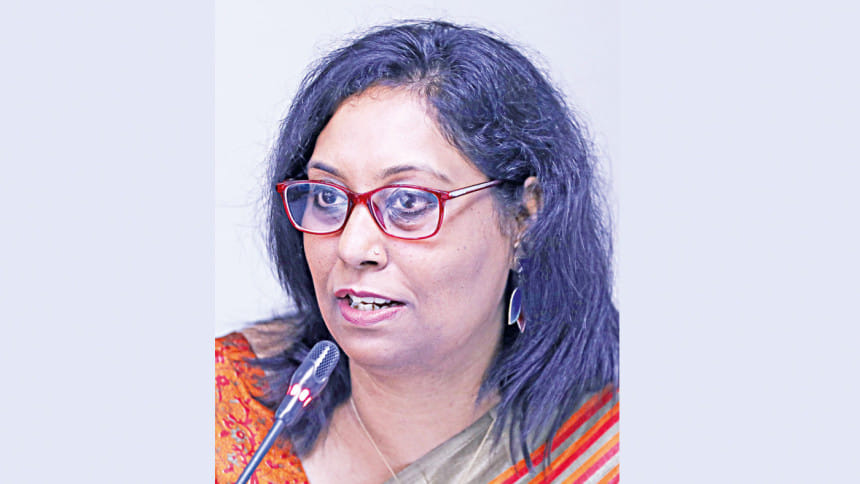
Tasfiyah Jalil, Senior Coordinator, BRAC James P Grant School of Public Health (JPGSPH), BRAC University (Keynote Presentation)
Inclusivity requires concrete action. For instance, ramps for people with disabilities are often missing or poorly designed, and workplaces rarely consider accessibility features like wheelchair-friendly washrooms or Braille buttons in lifts. Inclusivity also extends to sensitising colleagues to the challenges faced by marginalised communities, including transgender individuals. Gender-based violence (GBV) affects women, men, and others, manifesting in various forms, such as physical and psychological abuse, sexual harassment, exclusion, online harassment, and economic or social abuse.
To create safe workplaces, it is essential to ensure equal opportunities, gender sensitivity training, safe reporting mechanisms, a supportive workplace culture, safety audits, mental health support, safeguarding measures, and robust policies against sexual harassment. Accountability is paramount: those who commit harassment must face consequences, regardless of their position or performance. A zero-tolerance policy must be enacted in practice, with committees that fairly represent all employees.
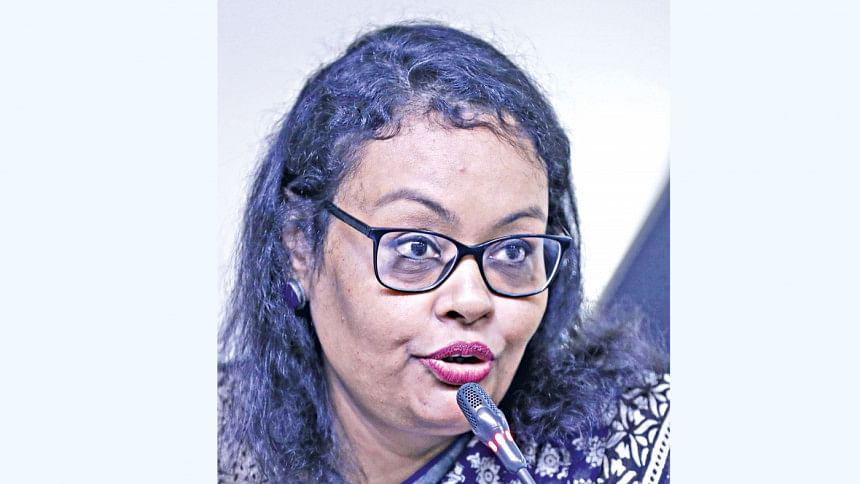
Dr. Sanzida Akhter, Professor, Department of Women and Gender Studies, University of Dhaka
Workplace violence discussions often centre on physical locations like offices and buildings. However, with many professionals now working online and a large portion of Bangladesh's female workforce employed in the informal sector without fixed workplaces, workplace safety must address these diverse environments, ensuring all facets of a worker's experience are considered.
Social norms, learned at home and in schools, are increasingly shaped by social media. Yet, there often exists a conflict between these norms and workplace expectations, particularly regarding gender. This misalignment contributes to workplace issues, as we lack sufficient sensitisation to foster genuine behavioural change.
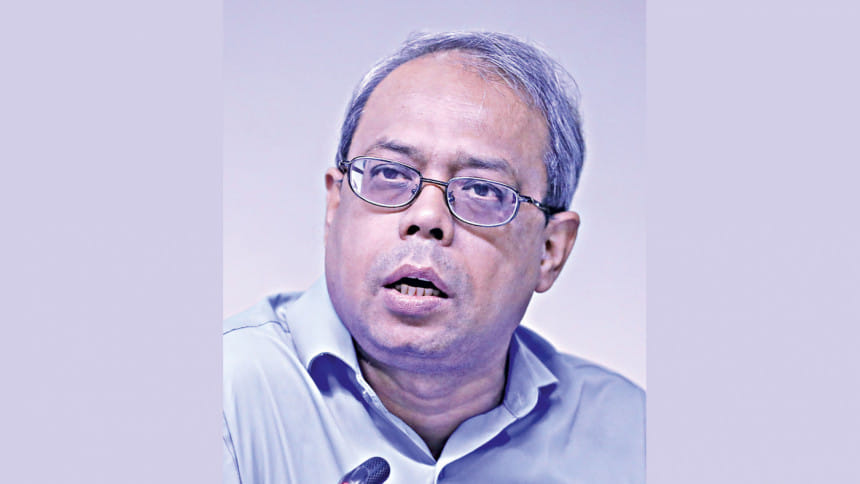
Dr. Sayed Rubayet, Country Director, Ipas Bangladesh
Although laws and policies have been developed, their implementation remains inadequate. Government offices have not acted on the High Court's 2009 directives, which constitutes contempt of court and is rarely discussed.
Comprehensive sexuality education exists in textbooks but is seldom taught due to a lack of teacher training, making it a taboo subject. We must confront the power dynamics behind sexual abuse and harassment and redesign our education system to challenge harmful family norms.
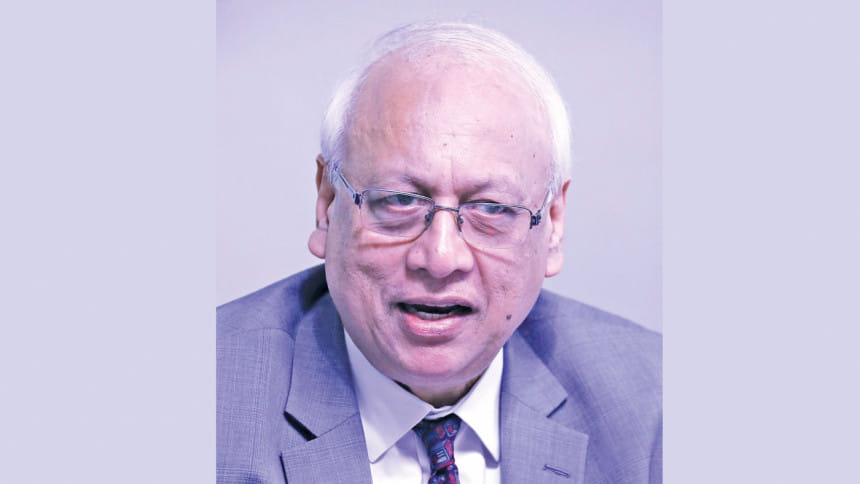
Shafquat Haider, Vice President, SAARC Chambers of Commerce and Industry
To raise awareness about workplace safety and harassment against women, a sustained national programme is essential. While we focus on implementation, the broader public must be informed through a continuous media campaign highlighting this critical issue.
Lactating mothers often face harassment in factories, lacking sufficient time to care for their children and sometimes being required to work at night to compensate for lost time.
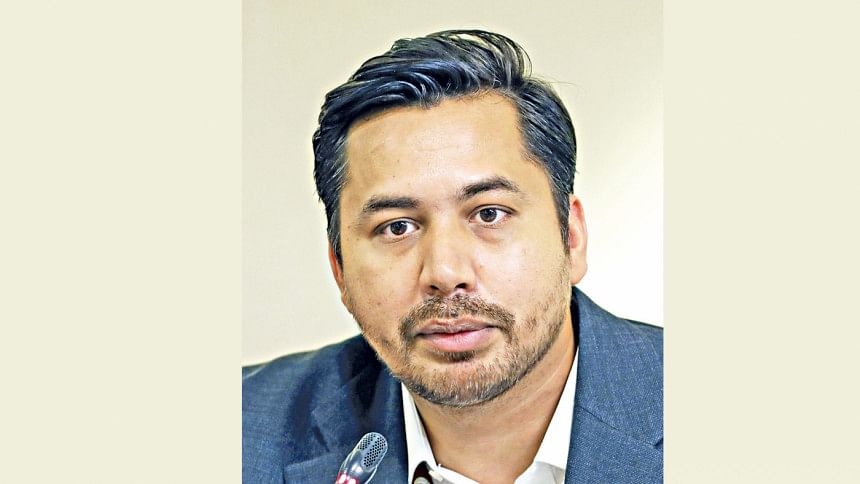
Md. Adnan Hossain, Founder & Executive Director, It's Humanity Foundation
Verbal harassment is the most prevalent form of harassment today. Observing similar situations in both my organization and partner organisations has prompted us to adopt policies against it. Another pressing issue is ensuring the safety of women employees working late. While safety concerns may not be as significant within the office, commuting home at night poses risks. Although some companies provide transportation, many fail to ensure women's safety after they leave the workplace.
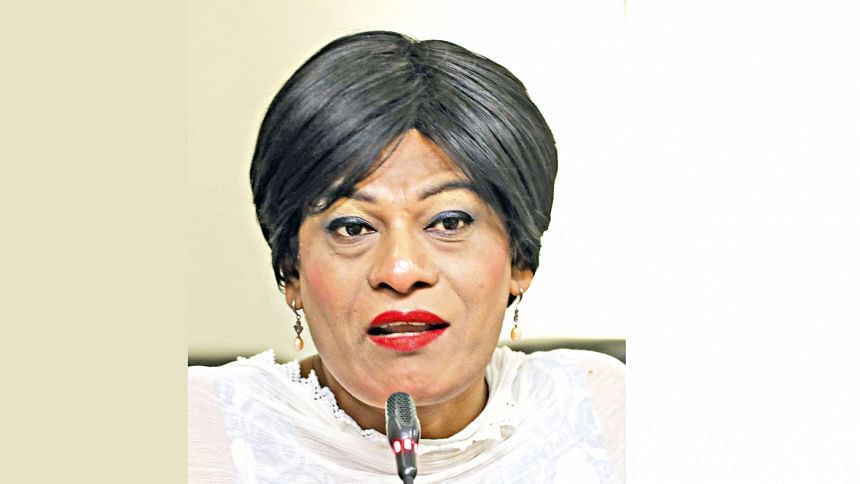
Joya Sikdar, Executive Director, President of Somporker Noya Setu (SNS)
It is vital to acknowledge gender-diverse communities, as there is a notable lack of concern from both the government and the health sector regarding their reproductive health needs.
Reproductive organs begin developing during adolescence, yet there is minimal dialogue about how intersex or transgender individuals navigate this critical stage of life. Many experience mental trauma and bullying during their teenage years, with their mental health concerns frequently overlooked.
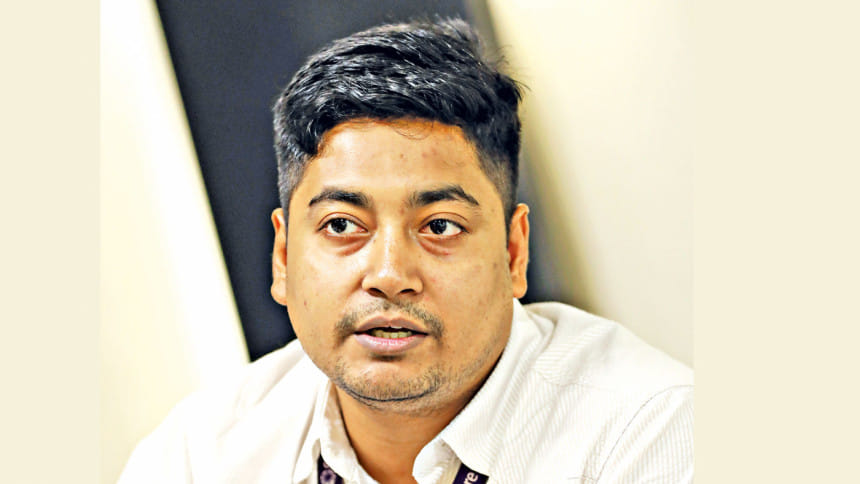
Mahmudur Rahman Khan,I Technical Coordinator, N&E, CARE Bangladesh
Our research shows that 38% of women RMG workers view workplace harassment and violence as normal, severely impacting their well-being. Although High Court directives call for harassment complaint committees, they are ineffective, with 62% of women unaware of what constitutes harassment and 81% unaware of the existence of these committees. Furthermore, the directives regarding sexual harassment lack clarity and inclusivity, necessitating urgent attention.
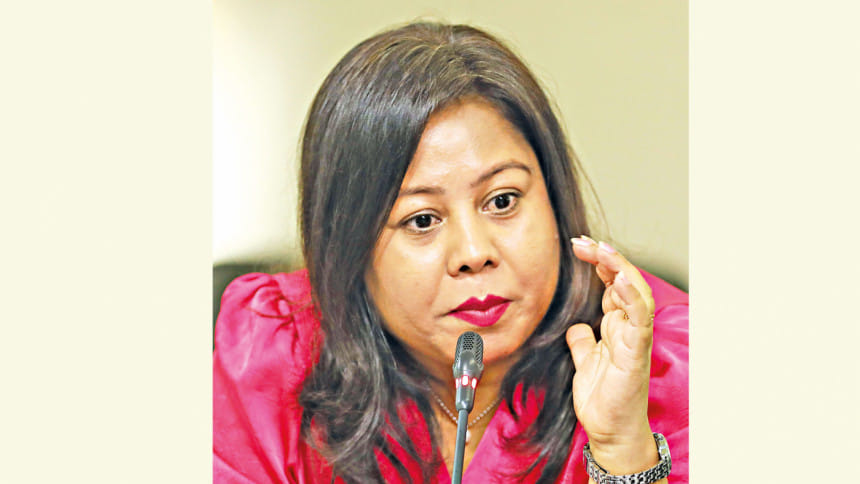
Hasina Parvin, Head of Business Development, eBitans
The primary issue resides in the implementation of laws rather than the formulation of policies. Law enforcement often prioritises the strength of evidence over the victim's willingness to file complaints, which challenges the victim's experience and leads to additional mental distress. Addressing this issue must be a top priority.
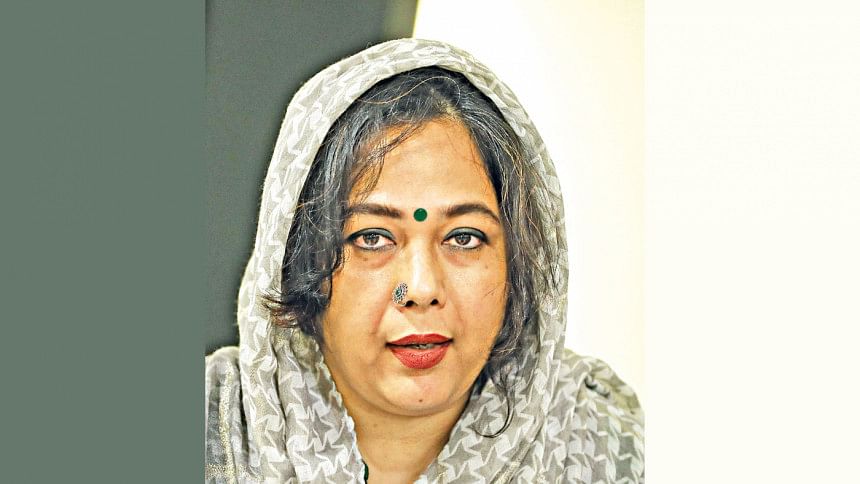
Anita Sharif Chowdhury, Team Leader, Population Services and Training Centre (PSTC)
I primarily work in the development sector, where discussions about policies and gender safeguarding guidelines are common. However, these guidelines often remain unimplemented, as cases of harassment frequently go unreported.To foster meaningful progress, we must connect this issue to our socialisation and upbringing. Emphasising moral education could help alleviate concerns and create a more respectful work environment.
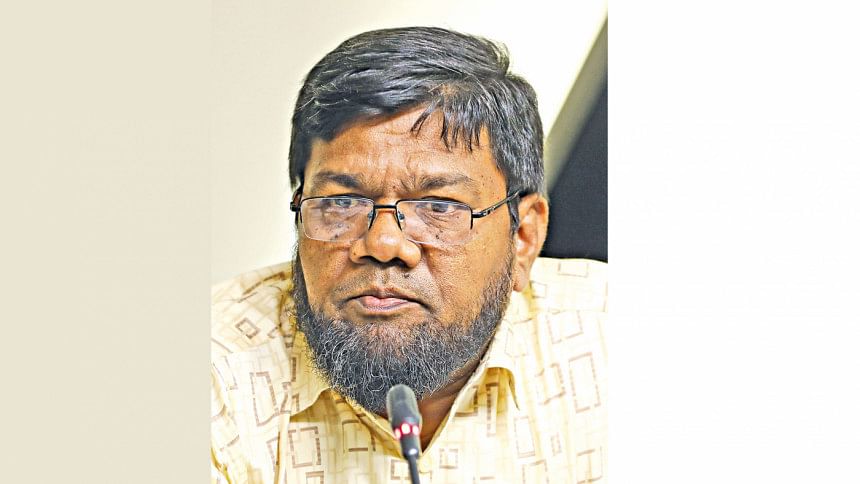
Md Moniruzzaman Khan, Founder and Managing Trustee, Bangladesh Disabled Development Trust-BDDT
As society progresses towards greater gender equality, many visually impaired girls are entering the job market, where they face dual oppression—first as women and then as individuals with disabilities.
Recently, I reviewed a research from UNFPA and the EU, which outlined 16 laws containing 64 provisions related to GBV, with penalties of up to 10 years in prison for violations. However, it is disheartening that the newly enacted ICT law lacks specific provisions addressing sexual harassment, which is a concerning oversight. Without stronger legal frameworks, the issue of harassment will likely continue unabated.
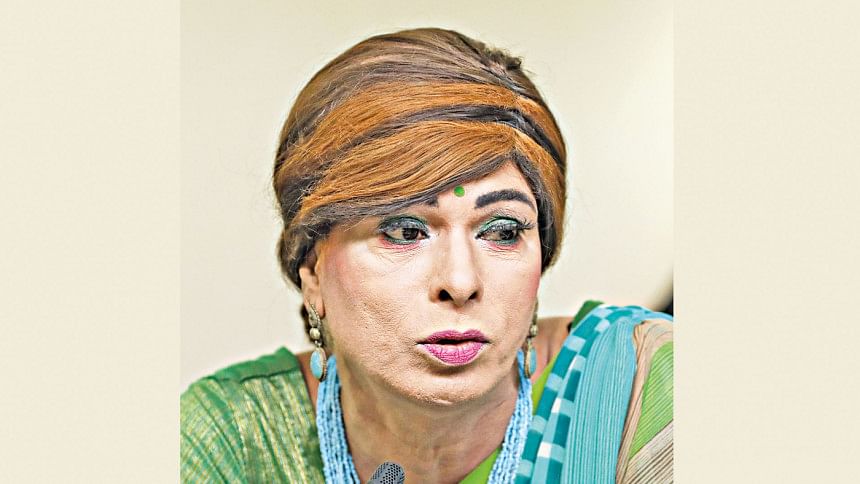
Ivan Ahammed Katha, Executive Director, 40 up Bangladesh
From early childhood, I became aware of gender identity issues, recognising that I am neither male nor female—what might be described as transgender or eunuch.I have always identified myself primarily as a human being and a worker above all else. However, there remain segments of society whose mindsets we have not been able to change positively.
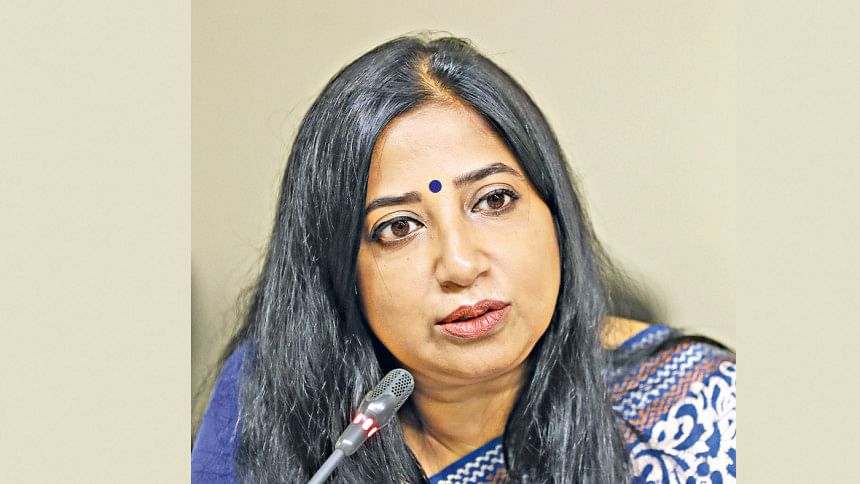
Nazra Sabet, Senior Director and Chief Executive Officer, Friendship Colours of the Chars
We work in remote charland areas, focusing on women's health by setting up health camps for gender-specific issues. Unfortunately, women health workers frequently face sexual harassment. Our earlier attempt to employ male health workers was ineffective, as women's health issues are best handled by women. To minimise the risk of gender-based violence, we now send two female health workers together for home visits. It is essential to address these challenges through improved socialisation.
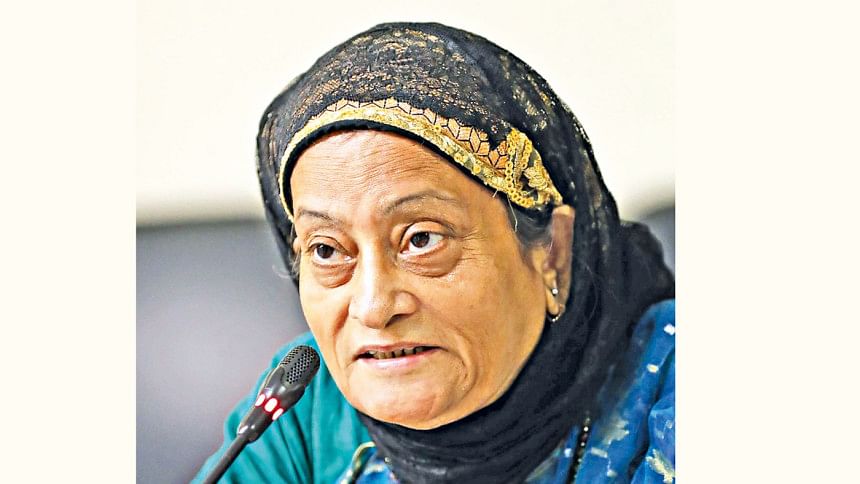
Dr. Sara Banu, Member of Health Subcommittee, Bangladesh Mahila Parishad (BMP)
Women's issues extend beyond reproductive health; our focus includes adolescent concerns and safeguarding girls from various risks. We must remain vigilant about their safety at home, as sexual exploitation often begins with close relatives.
Moreover, we need to prioritise the safety of women workers in the pharmaceutical industry, particularly those exposed to biohazards.
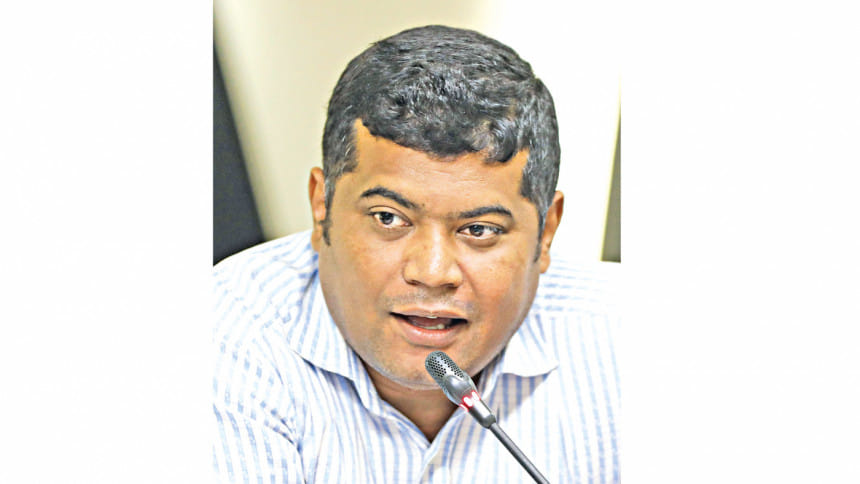
Monzurul Alam, Program Manager, Manusher Jonno Foundation
The growing influence of religious rhetoric in our daily lives raises concerns, as some of this discourse is not gender-sensitive and can be aggressively anti-woman. We must collaborate to create a counter-narrative that prioritises women's safety and well-being.
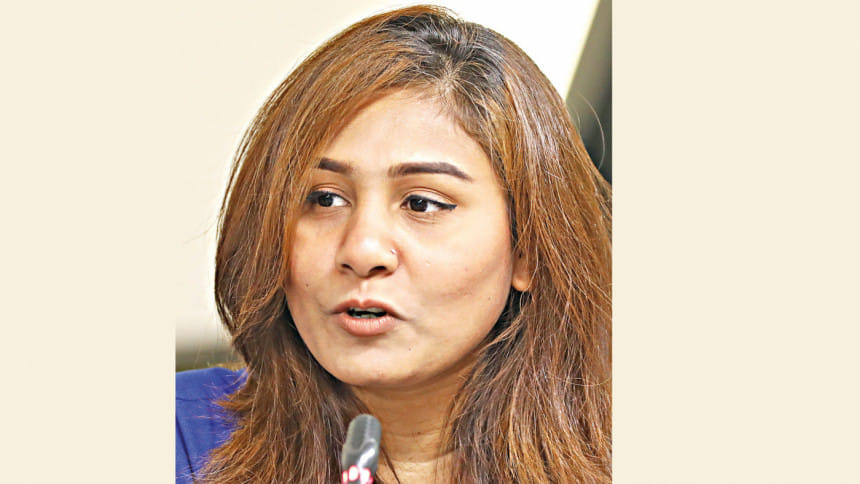
Dina Afsana, Co-Founder and COO, Vertical Innovations
There is a severe lack of respect for women, which is a serious national concern. Women are not safe anywhere—whether at home, within the family, or in the community—and I believe my colleagues would agree with me. On a positive note, we have installed sanitary napkin vending machines in the washrooms, which has significantly reduced the challenges related to feminine hygiene.
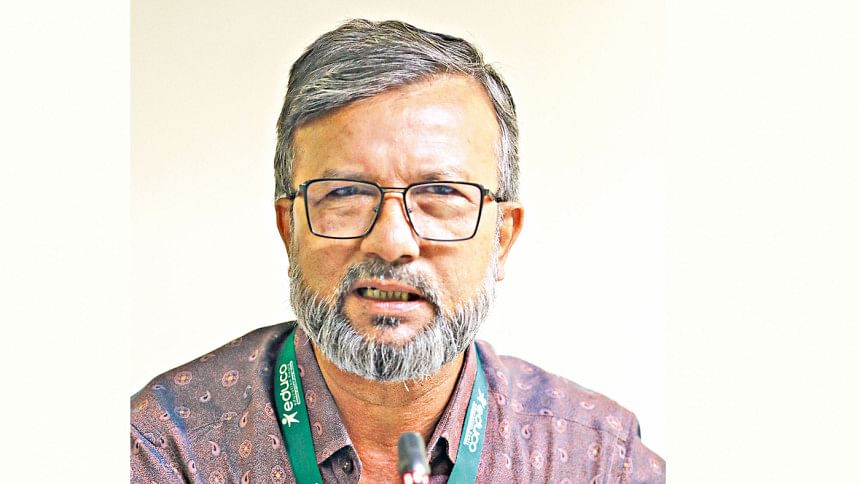
Abdur Rahim, Director of Programs, EDUCO
Our current laws do not recognise house helps as labourers, a reality acknowledged by most policymakers. Regrettably, they frequently fall victim to abuse in the households where they work. While various laws exist, there is an urgent need for an independent, rapid preventive act.
At EDUCO, our complaint committees consist of mid-level colleagues, differing from many organisations where the highest-ranking individual holds this position. This structure allows for impartial investigations of senior officers involved in incidents. Consequently, we have not received any complaints of sexual harassment in the last five years.
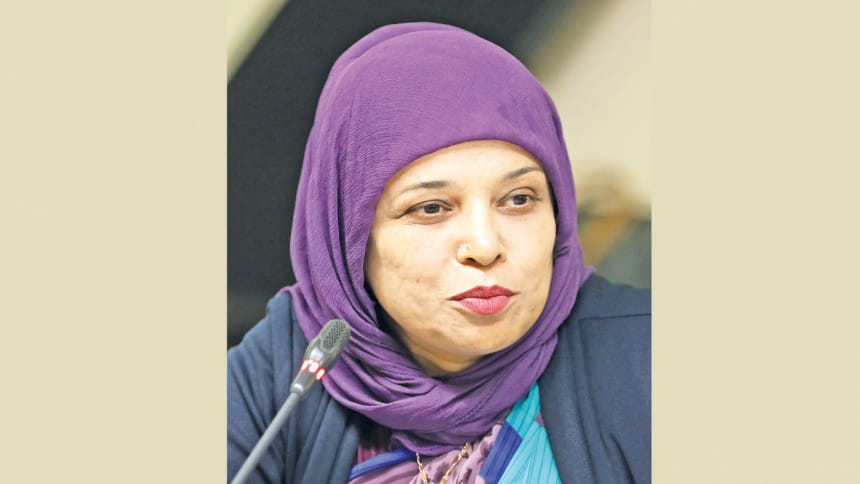
Shahela Haroon, Director of HR and Admin, Group4S
Our company offers 24/7 security services year-round, continuing even during COVID. We employ both male and female guards, and I emphasise that policy must be supported by streamlined procedures. By integrating technology, we have ensured security and simplified the reporting process, addressing previous issues where guards lacked the confidence or knowledge to report incidents.
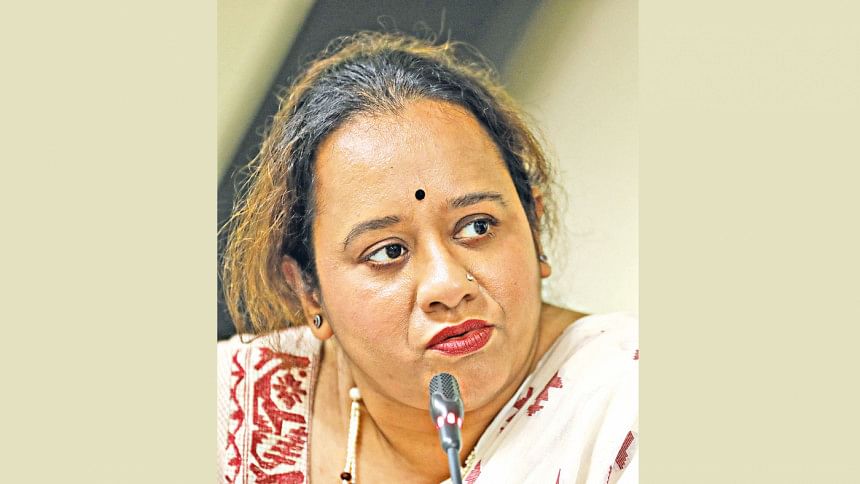
Nisbat Anwar, Head of HR, Renata Ltd
When I joined Renata, there was a strict zero tolerance policy for sexual harassment, yet no formal framework was in place. It took me approximately three years to establish a comprehensive policy aligned with High Court guidelines. At Renata, we also provide mental health support and promote awareness of issues such as PCOS, menstruation, and menopause. We emphasise the importance of educating male employees and have introduced a dedicated phone line for reporting harassment.
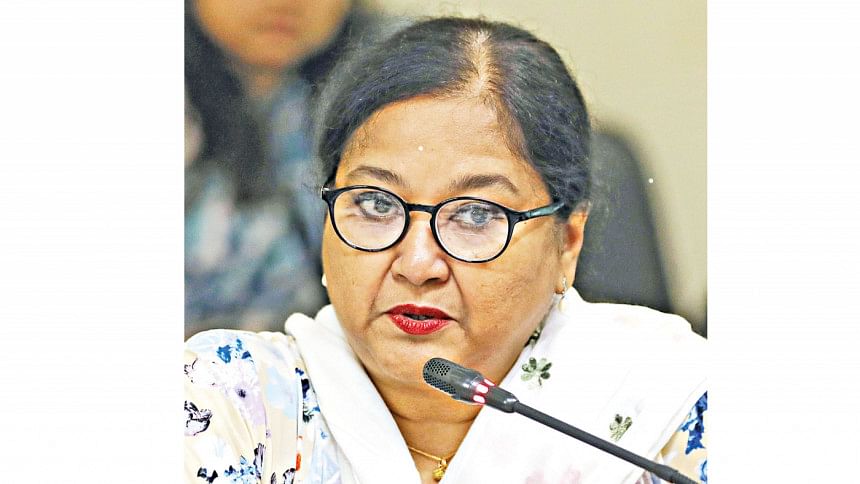
Anika Rahman Lipy, Assistant Director, Centre for Disability in Development (CDD)
Among our 400 employees, 17-18% are individuals with disabilities, and we experience minimal dropout rates, particularly among long-serving women. As a foreign-funded organisation, we have established policies but prioritise fostering practical values. These principles have been embraced by successive generations, and enhancing leadership remains crucial for sustaining them. We have implemented hotline numbers, promoted a whistleblowing programme across our 20 branches, and appointed a safeguarding officer to address concerns.
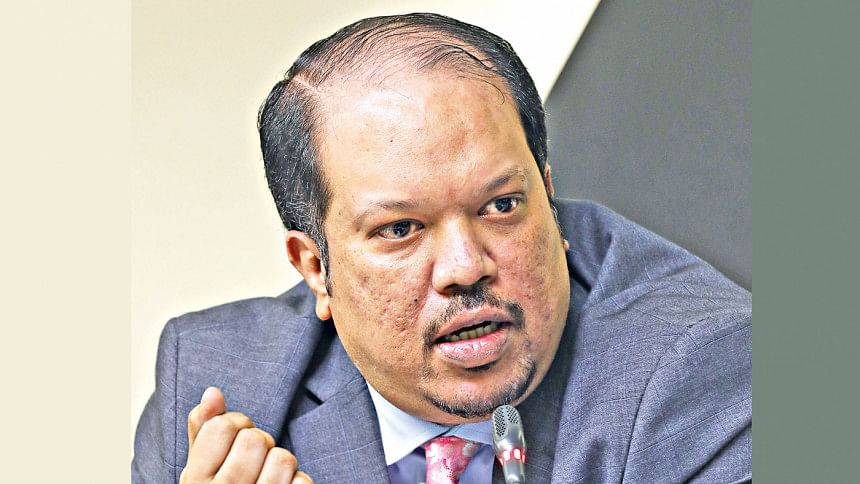
Mohammad Salekeen Ibrahim, Head of Asset, Eastern Bank
Initially, we lacked a formal harassment policy, but we have since developed one and appointed a female head to oversee reporting. Our "speak-up" policy encourages anyone who feels harassed or bullied to come forward. Effective implementation fosters a positive culture. Our HR department conducts regular training for female employees and ensures transparency in recruitment and promotion by sharing gender ratios. We also conduct surveys every three to six months to collect feedback on organisational dynamics.
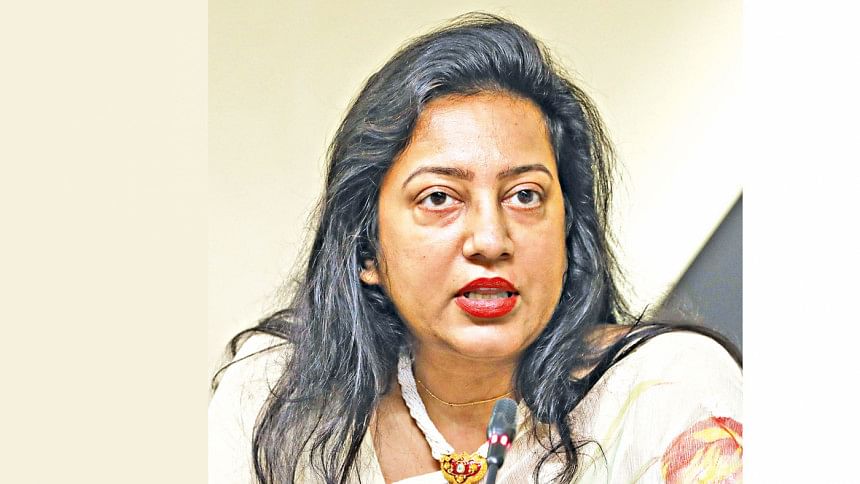
Mantasha Ahmed, President, Association of Fashion Designers of Bangladesh
The fashion industry is vast, populated by numerous female entrepreneurs, yet it is often perceived as an informal sector rather than a formal industry. Additionally, the lack of specific policies hinders its growth.
Despite the higher number of women in modeling, the profession remains stigmatized. We have requested the National School of Drama (NSD) to provide three months of comprehensive training for aspiring models, culminating in an internationally recognised certificate.
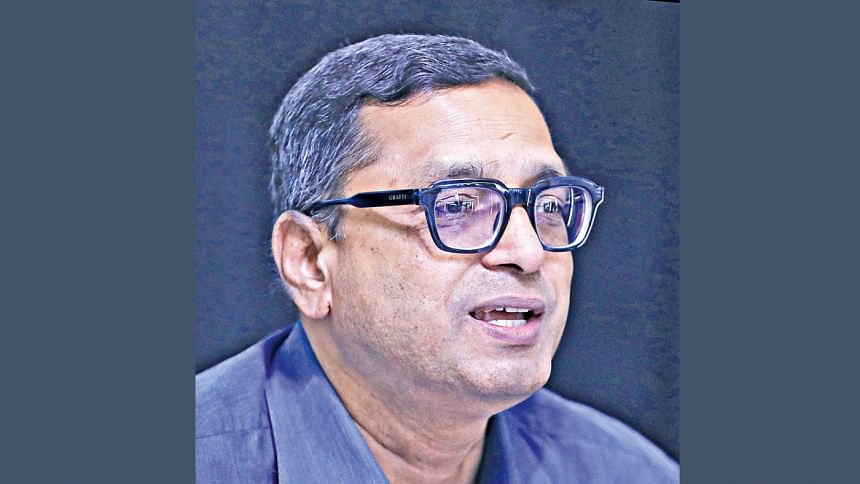
M A Akher, Director (Admin) (Joint Secretary), Department of Youth Development (DYD)
During my tenure at the Ministry of Planning, I noted a troubling absence of women in project design, despite their making up half the population. A significant factor is that 50% of females in Bangladesh are still forced into marriage before the age of 18, presenting considerable challenges for the Directorate of Youth Development (DYD), which focuses on individuals aged 18 to 35. As a result, many young girls miss out on education and training opportunities. To combat this issue, we initiated the Economic Acceleration & Resilience program for NEET (Not in Education, Employment, or Training) individuals.
Policymakers frequently struggle to grasp the challenges faced by stakeholders for whom we create policies, and their voices often go unheard by decision-makers. To ensure that our work benefits the intended populations, insights from individuals and institutions like yours are essential. I believe collaboration and interaction between government bodies and non-governmental organisations are crucial, as they often lead in youth development and empowerment, providing initiatives and insights that can significantly enhance our efforts.
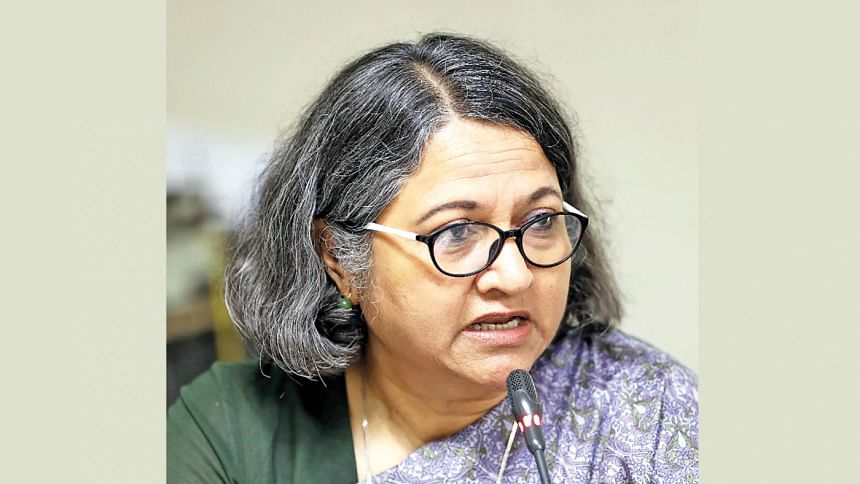
Tahsinah Ahmed, Executive Director, BYLC
Change begins with individuals. We must engage in self-reflection and critically assess whether we are truly doing our best. Regardless of disparities in political, social, or economic power, everyone has a role in driving progress. Identifying factors that impede our coordination efforts is crucial. Although policies have been initiated, we need honest conversations to pinpoint challenges and encourage collaboration. Increased dialogue, learning opportunities, and collective efforts are essential for progress.
Institutional inconsistencies persist; for instance, which organization takes the lead in advancing gender equality? Can the Department of Women Affairs implement resolutions that gain national acceptance? Ministerial-level coordination is essential, supported by a high-level committee addressing multidimensional issues. Our organization has established committees to evaluate policy violations and ensure victims' voices are amplified.
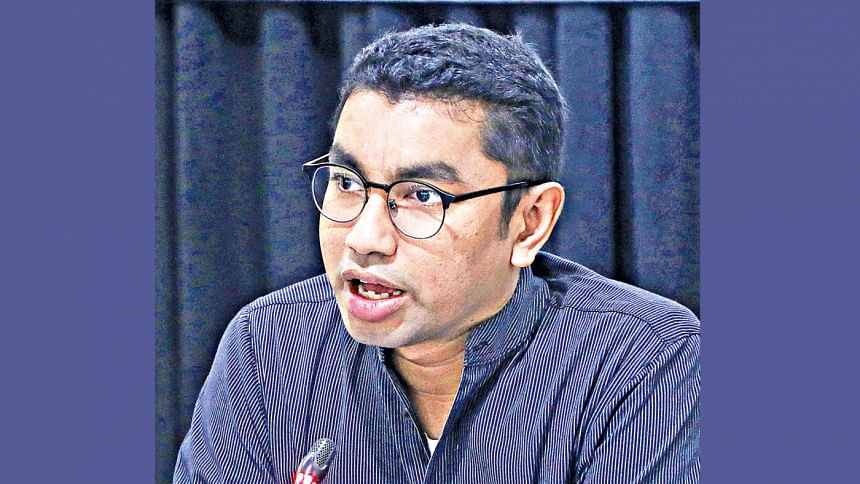
Tanjim Ferdous, In-charge of NGO and Foreign Missions, Business Development Team, The Daily Star
Equity and inclusion must be more thoroughly integrated at the corporate level in Bangladesh to advance our progress towards the Sustainable Development Goals (SDGs). Central to this effort are human resource policies. However, there remains a substantial gap in understanding the distinctions between financial inclusion, diversity, and equity. When institutions prepare Environmental, Social, and Governance (ESG) reports, they frequently emphasise product inclusion rather than addressing equity and inclusion at the organisational level. To rectify this, the corporate sector needs to implement awareness campaigns that focus on these critical issues.
Recommendations
- Expand workplace safety policies to cover both online workspaces and informal sector environments.
- Implement safe and harassment-free commuting options as part of workplace safety measures.
- Provide comprehensive training for teachers to effectively deliver sexuality education and combat the associated stigma.
- Launch a sustained national programme to raise awareness about workplace safety and harassment against women.
- Integrate comprehensive gender sensitisation education into the school curriculum to address the unique challenges faced by intersex and transgender individuals.
- Strengthen the functionality of harassment complaint committees by ensuring they are well-resourced and staffed with trained professionals who can effectively address complaints.
Establish regular training sessions for all employees on workplace guidelines and gender sensitivity, ensuring continuous awareness and understanding.
Encourage multi-sectoral collaboration that relies on data and research to inform decision-making regarding workplace safety.
Every organization should create and implement gender-inclusive policies to foster a supportive work environment.
Implement comprehensive training programs focused on disability awareness and harassment prevention to create a safer and more inclusive workplace for women with disabilities.

 For all latest news, follow The Daily Star's Google News channel.
For all latest news, follow The Daily Star's Google News channel. 



Comments